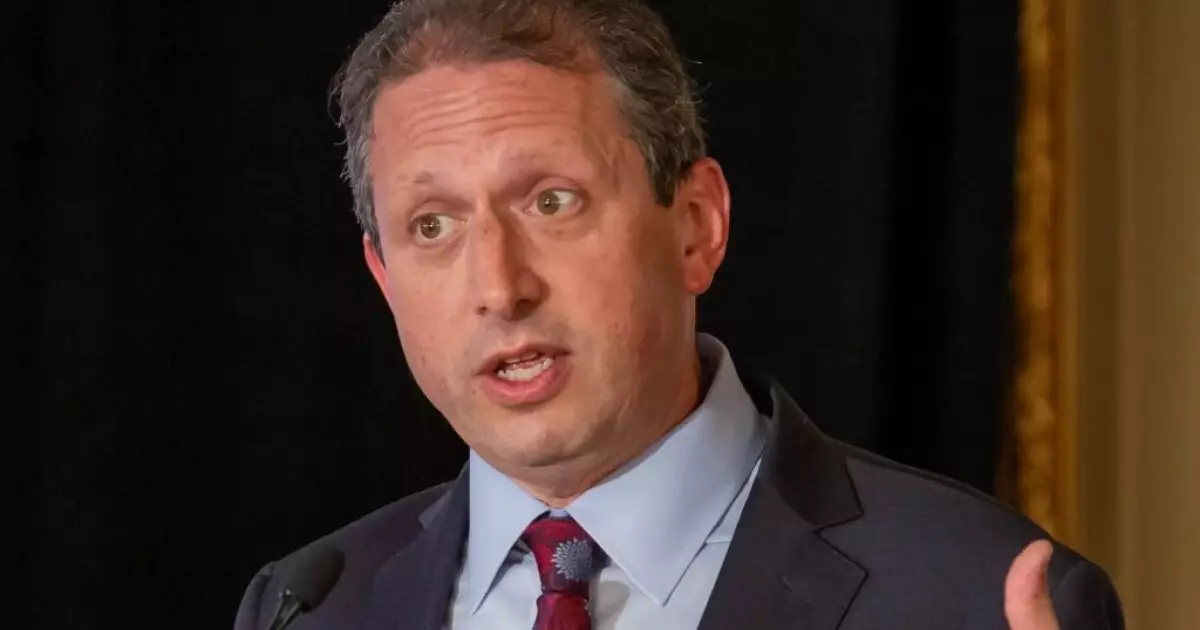In a groundbreaking move, New York City Comptroller Brad Lander has expressed strong support for a policy that excludes fossil fuel infrastructure from the city’s pension investments. This visionary stance positions three of New York’s pension funds—namely the New York City Employees’ Retirement System, the Teachers’ Retirement System, and the Board of Education Retirement System—as potential leaders in a nationwide shift toward sustainable investing. The implications of this decision are far-reaching, considering these funds manage a colossal portfolio of approximately $285 billion. By adopting this policy, New York City aims not only to protect the environment but also to shield its investments against the pervasive and escalating risks associated with climate change.
Understanding the Financial Imperative
Lander articulated a critical viewpoint when addressing the media: “Climate risk is financial risk.” This assertion encapsulates the duality of the current global dilemma—environmental degradation and economic stability are increasingly intertwined. As investors, it is essential to adopt a systemic risk perspective, taking into account the myriad ways in which climate change can adversely affect financial outcomes. By emphasizing this relationship, Lander positions the pension funds as proactive guardians of both public resources and the planetary ecosystem, showcasing a commitment not merely to ethical investing, but to sound financial stewardship.
In early 2025, the Comptroller’s Bureau of Asset Management will roll out this proposed policy to the trustees of the aforementioned pension funds. The urgency and importance of addressing fossil fuel investments cannot be overstated, especially considering that these pensions previously divested from fossil fuel reserve owners in public equity investments during 2022. However, this proposed policy goes further by targeting private equity and infrastructure investments, which often contribute significantly to fossil fuel emissions. To enhance transparency and accountability, the Bureau plans to assess the current value of existing midstream and downstream holdings prior to formalizing this new strategy.
Transitioning away from fossil fuel investments is only one piece of a broader puzzle. The trustees of these pension funds had already voted to exclude upstream fossil fuel investments, which encompass exploration and extraction activities. Lander’s new proposal seeks to enlarge the scope of these exclusions to include critical infrastructure elements like pipelines and liquefied natural gas (LNG) terminals. Yet, it’s vital to understand that this initiative does not entail immediate liquidation of existing fossil fuel investments; rather, it signifies a strategic shift toward sustainable allocation of new investments.
Amidst these shifts, it is interesting to note that the New York City pension funds allocated around $11 billion to “energy and climate solutions” as part of their Net Zero Implementation Plan. This is strikingly three times the amount previously invested in fossil fuel reserve owners before 2021. This proactive reallocation demonstrates not only a commitment to environmental sustainability but also a recognition that the investment landscape is changing, with green energy solutions poised for substantial growth.
Lander’s initiative stands in stark contrast to recent political maneuvers in several Republican-led states that push aggressive polices favoring fossil fuel industries. These states often retaliate against financial institutions that choose to veer away from traditional energy investments. But New York City’s resolute approach exemplifies a bold stance, valuing long-term environmental sustainability over short-term political convenience. “We are already a tough partner to have” in negotiations, Lander quipped, suggesting that this rigorous approach is not only necessary but beneficial for cultivating sustainable investment partners.
The endorsement by New York City’s Comptroller sets a formidable precedent for public pension funds nationwide, demonstrating that sustainable investing can align with sound financial practices. As awareness of climate-related risks mounts, other cities may follow suit, seeking similar policies that respect both fiduciary obligations and environmental stewardship. New York’s decision serves as a blueprint for how cities can proactively address their financial portfolios and contribute to a healthier planet. The future of investing may very well hinge on such vital decisions that prioritize sustainability alongside profitability.

